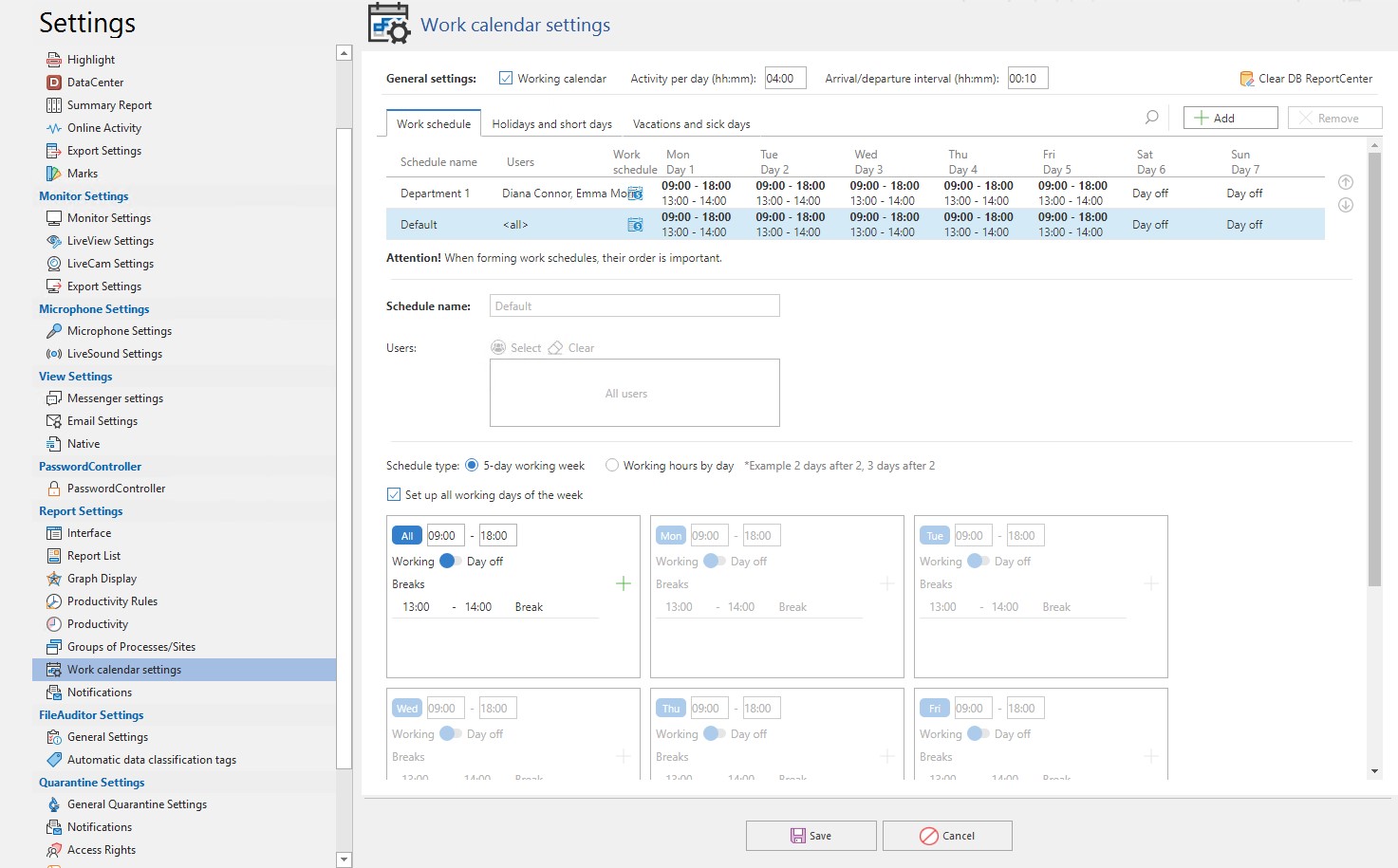The new release of the SearchInform DLP system provides the functionality which enables to detect the alleged workaholics and helps to determine with the maximum accuracy how efficiently did the employee work during the day. The cope with this task, the “virtual activity” attribute was added. It detects whether a user imitates activity with the help of an autoclicker program or simply by holding down keys on the keyboard.
“Nearly all companies face the problems with the work discipline. The employer can reveal which employees try to cheat the work time control system and download various autoclicker programs on their computers to imitate active work” – told the leading analyst at SearchInform Alexey Parfentiev.
The function of work calendar flexible customization for correct accounting of work hours was added as well. From now on, it is possible to configure an individual work schedule for any employee or department. This function is useful if employees stick to different work schedules, or if there are shift workers in the organization. It is possible to complement the calendar with such parameters as vacations, holidays and days off as well.

In order to make sure, that the system does not count time spent by an employee on a business meet-up or on a planning meeting as unproductive, the DLP was integrated with the Outlook calendars. In case there is a planned meeting in the calendar, DLP will count the time spent on the meeting as productive for all event participants.
The data on the users’ efficiency can be obtained in the daily activity report. All the time periods when an employee was active are displayed: time of the beginning and ending of the work day, intervals of activity or inactivity, violations of the work schedule (late arrivals, early departures).

Subscribe to our newsletter and receive a bright and useful tutorial Explaining Information Security in 4 steps!

Subscribe to our newsletter and receive case studies in comics!